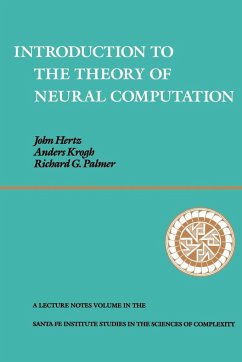
On the Shoulders of Giants

PAYBACK Punkte
28 °P sammeln!
Mathematics is the only science with a methodology based upon deductive logic, whereas physics is a quantitative science based upon experiment and observation in which trial and error are inherent. Physics uses the most relevant mathematics, for example using group theory to explain the theoretical basis for the crystalline structure of solids, an illustration of how, time and time again, a mathematical theorem perhaps developed by a Greek philosopher is relevant to today's newly developed physics proof. On the Shoulders of Giants investigates the relationship between the disciplines of physic...
Mathematics is the only science with a methodology based upon deductive logic, whereas physics is a quantitative science based upon experiment and observation in which trial and error are inherent. Physics uses the most relevant mathematics, for example using group theory to explain the theoretical basis for the crystalline structure of solids, an illustration of how, time and time again, a mathematical theorem perhaps developed by a Greek philosopher is relevant to today's newly developed physics proof. On the Shoulders of Giants investigates the relationship between the disciplines of physics and mathematics and shows how many of the most significant advances of 20th-century physics rely on mathematics developed, sometimes much earlier, with no particular physics application in mind. Quoting from mathematicians such as Poincaré and Euclid and physicists such as Newton and Feynman, the links between the two disciplines are explored in the author's entertaining style, providing a fascinating account of the twists and turns in scientific progress through the ages. Challenging, stimulating, and questioning, the book explains how the uncanny ability of formal and abstract mathematics can interpret the properties of the physical world. Using a wide ranging set of examples, it illustrates the manner in which mathematics has been applied to physics and even points to directions for future research. The book discusses how to fill space without leaving gaps; Euclidean geometry, its limitations, and the bending of space; the laws of musical harmony, sound vibrations, and the confinement of electrons in solids; how to tile a floor efficiently; Newton's Laws of Motion, chaos, and the weather; group theory and garlic; the laws of chance; route-planning in Konigsberg with Euler; the rules that turn bath bubbles into suds; the shape of soot; and the Schrödinger equation and why a pendulum can never stop. Requiring some prior knowledge of physics and mathematics, this well-illustrated book will be of interest to all readers with an interest in physics and mathematics, in learning more about the role of mathematics as the formal language of physics, and in how physics and mathematics have influenced scientific research.














